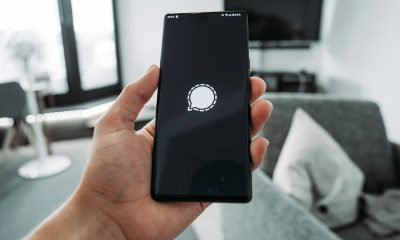Guides
What Is Use Of Bluetooth amplifiers? Are They Useful?
Bluetooth amplifiers operate and are installed in a manner similar to standard amplifiers, with the distinction of incorporating integrated Bluetooth modules.
The inclusion of a Bluetooth module distinguishes Bluetooth amplifiers from traditional amplifiers, as it enables the former to establish wireless connections with Bluetooth-enabled devices like tablets and smartphones.
The primary objective of a Bluetooth amplifier is to enhance the power of the audio signal that is transmitted from a Bluetooth-enabled device that is connected to it.
By implementing this technology, a Bluetooth amplifier effectively mitigates the occurrence of signal degradation, thereby preserving the integrity of the transmitted signal.
Additionally, it enhances the dynamic range of the audio signal, resulting in an enhanced listening experience characterized by superior fidelity.
The Bluetooth amplifier is a device that enhances the audio signal transmitted via Bluetooth technology.
A range of Bluetooth amplifiers have been developed to cater to specific applications, including headphone listening, car audio, and home audio.
Presented below are three instances that illustrate how the integration of a Bluetooth amplifier enhances the operational capabilities of the pre-existing audio system:
- The home audiovisual (AV) receiver allows for direct transmission of audio signals to the home theatre receiver, enabling users to enjoy audio playback through their pre-existing speaker arrangement.
- The use of a Bluetooth amplifier in conjunction with wired headphones expeditiously transforms them into wireless headphones.
- The incorporation of a Bluetooth amplifier into an automobile’s sound system not only enhances sound amplification capabilities but also introduces the convenience of wireless Bluetooth streaming functionality.
- The installation of this system may offer the added benefit of hands-free calling, contingent upon the specific type of amplifier used, as certain Bluetooth amplifiers are equipped with wired microphones.
Are Bluetooth amplifiers a worthwhile investment?

There exist Bluetooth headphone amplifiers within the approximate price range of $50, which can be chosen based on the specific requirements of the user.
There exist home audio/video receivers equipped with integrated Bluetooth functionality, ranging in price from a few hundred dollars to as high as one thousand dollars.
This prompts the inquiry as to whether it is truly necessary to expend such a substantial amount on a Bluetooth amplifier. Is it deemed to be of sufficient value or merit?
https://www.smarthomelivinginsider.com/how-to-power-off-the-echo-show/
Bluetooth vs. Traditional Amplifiers

In this analysis, we will compare the functionality and performance of a Bluetooth amplifier with that of traditional amplifiers.
The comparability of Bluetooth receivers and traditional receivers is contingent upon the utilization of identical equipment for signal output.
In essence, it is inequitable to juxtapose a low-cost $30 receiver with a conventional home theatre receiver due to the former’s insufficient power to adequately drive speakers and its lack of comparable features found in the latter.
a traditional amplifier, it is important to note that both devices serve the purpose of receiving audio input and transmitting an amplified signal to an output device.
What are the benefits of using a Bluetooth amplifier in comparison to conventional amplifiers, and is the investment justifiable?
The inclusion of a Bluetooth amplifier in a device enables the wireless streaming of audio from various mobile devices, thereby enhancing its versatility and usefulness across a range of applications.
Moreover, the majority of Bluetooth amplifiers are equipped with supplementary functionalities that enhance their worth, thereby conferring them a competitive advantage over conventional amplifiers.
This analysis aims to examine the benefits associated with the use of of a Bluetooth amplifier across three distinct applications, namely headphones, car audio systems, and home audio receivers.
Should You Buy a Car Stereo Bluetooth Amplifier?

The resolution to that inquiry is contingent upon the application or use of.
The purchase of a car stereo Bluetooth amplifier is justified when a vehicle lacks built-in Bluetooth connectivity, the user prefers to avoid using supplementary external devices, and desires the ability to stream audio from Bluetooth-enabled devices like smartphones or tablets.
If one intends to install a Bluetooth amplifier in an automobile lacking Bluetooth capability, then the acquisition of a Bluetooth amplifier is deemed advantageous. A significant number of older vehicles are equipped with stereos that do not possess integrated Bluetooth functionality.
An alternative method for integrating Bluetooth capabilities into an automobile involves the installation of a new Bluetooth adapter. However, this approach necessitates the establishment of a physical connection between the stereo system and the adapter via wiring.
Certain adapters can be inserted into the auxiliary input headphone jack, while in certain instances, Bluetooth modules may be installed by cutting wires and removing components from the dashboard.
The level of comfort one has with manipulating wires is subjective and dependent on individual preference. However, lacking adequate understanding of automotive wiring, one runs the risk of inadvertently causing harm to vital components within the vehicle’s electrical and stereo systems.
Let Discuss Some Alternatives for integrating Bluetooth functionality into the audio system of your automobile:
Is the inclusion of Bluetooth in a Home Theatre Receiver a worthwhile investment?
One of the advantages associated with the possession of an audio-visual (AV) receiver lies in its capability to amplify sound, thereby enhancing the auditory experience to resemble that of a theatre setting.
The concept of theater-like sound encompasses the utilization of surround sound technology rather than solely relying on stereo sound.
Bluetooth has the capability to transmit stereo audio, which consists of two channels. However, it lacks the capacity to transmit audio formats that demand more channels, such as those necessary for surround sound.
The prevailing configuration commonly found in domestic cinema spaces is the 5.1 surround sound system.
The system is equipped with five channels that provide full bandwidth, along with an additional low-frequency bass channel, commonly referred to as the “point one,” which is intended for use of in conjunction with a subwoofer.
Is the addition of Bluetooth in a Home Theatre Receiver a worth a feature?
Acquiring a newly purchased Home Theatre Receiver that incorporates built-in Bluetooth functionality may not be deemed a worthwhile investment solely for the purpose of obtaining Bluetooth capabilities.
Bluetooth amplifiers offer a cost-effective solution for achieving comparable audio quality when connected to an existing AV receiver.
Once a specific price threshold is reached, the majority of newly manufactured audio-video (AV) receivers will typically come equipped with integrated Bluetooth functionality.
In general, wireless connectivity is commonly associated with the presence of Bluetooth technology.
If an individual is currently in the market for a new Home Theatre AV receiver for reasons unrelated to Bluetooth connectivity, it may be advisable to consider purchasing a receiver that has the capability to connect to Bluetooth-enabled devices.
The primary motivation for acquiring a Bluetooth amplifier is typically to facilitate the use of wired headphones.
The prevalence of wireless Bluetooth headphones has been steadily rising; however, their compatibility is limited to devices equipped with Bluetooth technology, rendering them incompatible with wired devices.
It is commonly observed that a majority of premium headphones are equipped with wired connectivity.
This design choice is primarily attributed to the target audience of these headphones, who possess discerning auditory preferences and seek to experience audio of the utmost quality.
The necessity for wired connectivity arises from the fact that achieving such exceptional audio fidelity necessitates a physical connection between the headphones and the audio source.
Devices specifically engineered for high-fidelity audio reproduction incorporate Digital-to-Analog Converters (DACs) that possess notably elevated sample rates, reaching 253.8 kHz and beyond, alongside commendable bit rates of up to 32-bits.
It is noteworthy that there exist headphone amplifiers equipped with Bluetooth functionality.
Are Bluetooth headphone amplifiers Worth Buying?
The acquisition of a Bluetooth headphone amplifier is deemed essential and justifiable in instances where there is a need to establish a wireless connection between cordless headphones and a Bluetooth-enabled device lacking a headphone jack.
Additionally, it proves advantageous in scenarios where physical proximity prevents the use of a cord to establish a connection.
It is important to note that Bluetooth technology has been specifically engineered to operate within a limited range, typically around 20 feet.
The range of mobility is limited when using a Bluetooth headphone amplifier, preventing users from venturing too far from their mobile devices.
Bluetooth headphone amplifiers offer a convenient solution for contemporary smartphones lacking a traditional headphone jack.
The possession of a headphone adapter has facilitated the continued use of my preferred pair of headphones, namely the Beyer dynamic DT-770 Pro. Consequently, I have been able to employ them consistently within the confines of my workplace.
Regarding headphones, it is important to note that a Bluetooth headphone amplifier serves the sole purpose of facilitating connectivity with other Bluetooth-enabled devices.
If the headphones are equipped with Bluetooth functionality, the acquisition of an amplifier is unnecessary.
Conclusion
In the context of home theatres, the use of external Bluetooth amplifiers presents a cost-effective solution for achieving comparable audio quality, particularly when an individual possesses an established AV receiver.
Once a specific price threshold is reached, the majority of newly manufactured audio-video (AV) receivers will typically include an integrated Bluetooth feature.
In general, wireless connectivity is commonly associated with the presence of Bluetooth technology.
If an individual is currently in the market for a new Home Theatre AV receiver for reasons unrelated to Bluetooth connectivity, it may be advisable to consider purchasing a receiver that is capable of establishing connections with Bluetooth-enabled devices.
In the context of automotive audio systems, it is possible to integrate an external Bluetooth receiver into an already existing stereo system that possesses either an auxiliary input or FM radio antennas.
Bluetooth amplifiers can be considered as an enhancement in situations where there is already an intention to install an amplifier, or when aesthetic considerations are important and the desire is to avoid having a device visibly attached to the console.
When considering headphones, The necessity of a Bluetooth amplifier for headphones or a stereo system is contingent upon the specific characteristics of the sound system and headphones in question, as well as the contextual factors influencing their usage.
After comprehending the potential advantages of using a Bluetooth amplifier in various scenarios, it is incumbent upon you to ascertain the cost of the specific amplifier you are considering.
Armed with this information, you can then evaluate whether the price associated with the amplifier is commensurate with the aforementioned benefits we have discussed.
-
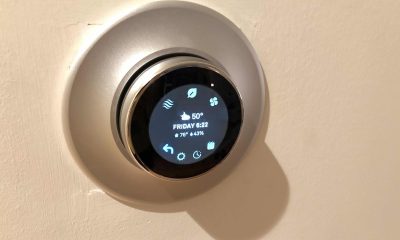
 Gadgets2 years ago
Gadgets2 years agoDoes Nest Thermostats Contain Cameras Or Microphones? Is It Safe For you?
-
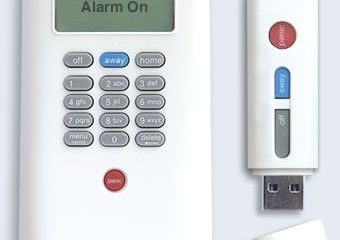
 Gadgets2 years ago
Gadgets2 years agoWhat Is The Purpose Of Red Button On The SimpliSafe Keypad?
-

 Guides8 months ago
Guides8 months ago10 Best Apps To Control All Your Smart Home Devices.
-
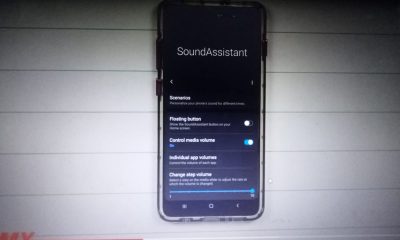
 Gadgets2 years ago
Gadgets2 years agoComplete Guide About Equalizer settings for Samsung-Soundbar
-

 Solutions2 years ago
Solutions2 years agoWhy is My Samsung TV Picture So Dark? Exploring the Possible Causes
-

 Solutions2 years ago
Solutions2 years agoHow to Connect Your Vizio TV to WiFi Easily Without a Remote?
-

 Gadgets2 years ago
Gadgets2 years agoFitbit Symbols Meaning: What Do The Fitbit Icons Mean?
-
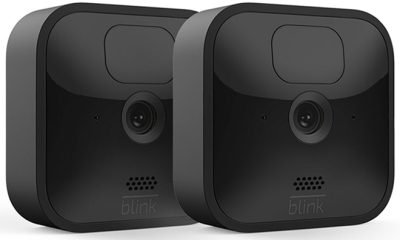
 Accessories2 years ago
Accessories2 years agoBlink Camera’s Temperature Sensor Settings, and More






































